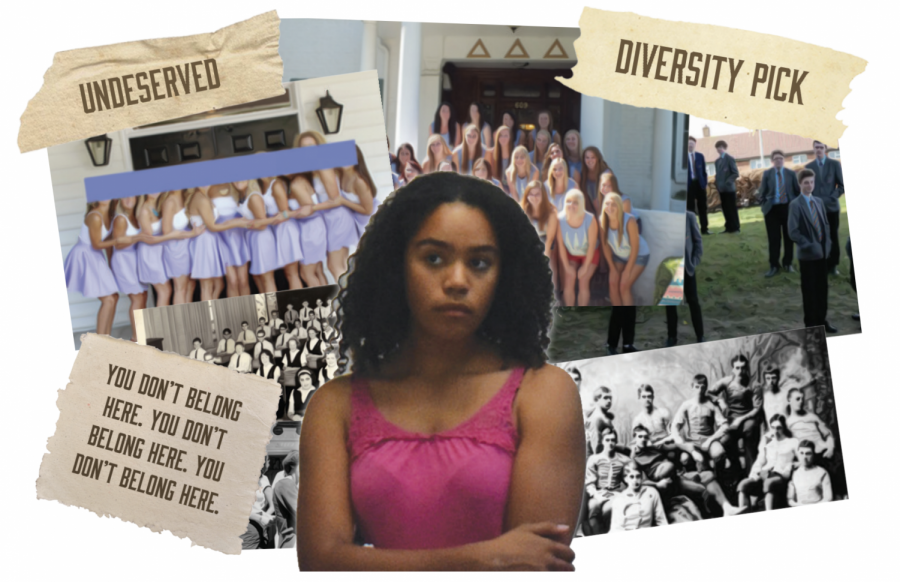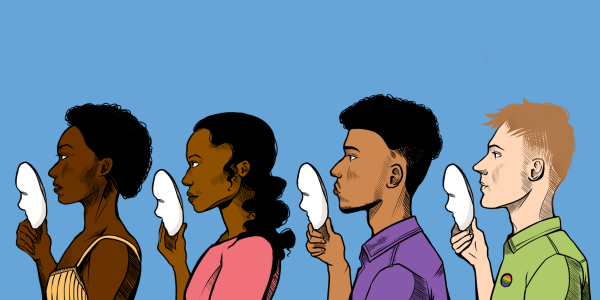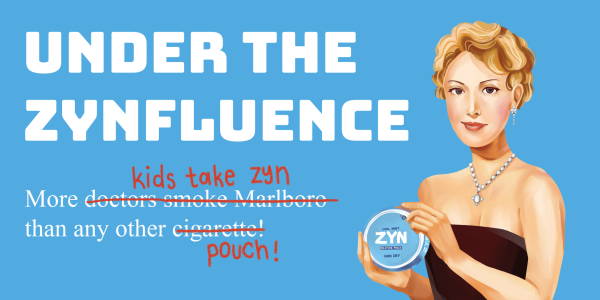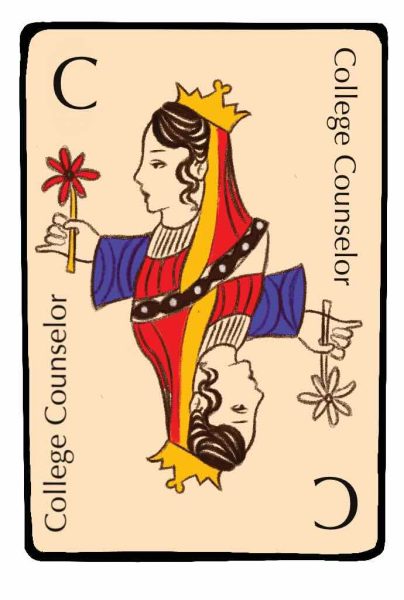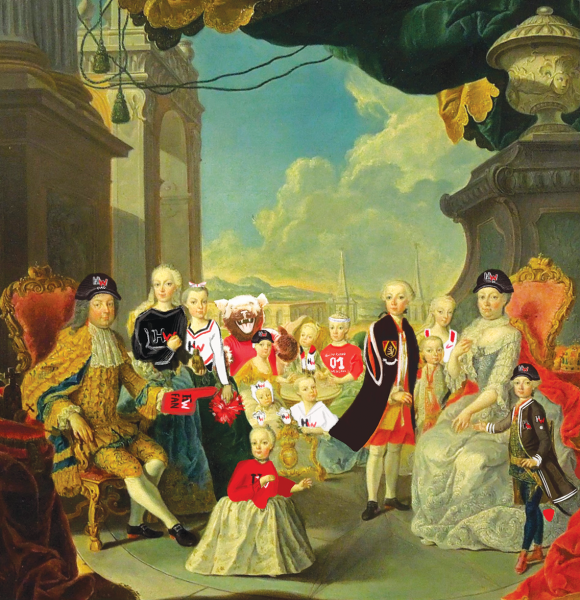Invalidation Frustration
Students of color reflect on racially motivated comments devaluing their academic success.
October 17, 2021
Sprawled out on the floor of her living room, Idalis McZeal ’23 passed a bowl of popcorn back and forth with a friend while “Legally Blonde” played on the television screen. As Elle Wood’s law school application video began to play, McZeal paused the movie to talk about her own dreams for the future. McZeal began sharing her aspirations to attend an excellent college but said her enthusiasm came to a sudden halt when her friend stated, “You have nothing to worry about. You’re going to get into every school you apply to, you know, because you’re Black.”
McZeal said her friend’s comment was both hurtful and racist and that she continues to feel its impact on her self-perception.
“That racist remark is still ingrained in my own thinking and the way I view myself,” McZeal said. “It started a cycle of self-doubt that often causes me to ask myself, ‘Am I [successful] because I deserve it, or am I here because of my skin color?’”
McZeal said she feels that her competence and effort are discredited when she is defined solely by her race.
“When I’m told the only reason I am where I am or the only reason I’ll ever achieve anything is because of my racial identity, which isn’t something I achieved or worked at but something completely out of my control, it invalidates all of my achievements,” McZeal said.
Students of color reflect on the ways in which racial stereotypes can invalidate their achievements and create feelings of self-doubt
Other students of color said that they have been in similar situations where their accomplishments were dismissed. Black Leadership Awareness and Culture Club (BLACC) leader Eghosasere Asemota ’22 said as a person of color, he feels that people immediately credit his academic success to special treatment and extra help.
“I feel I have to defend my accomplishments,” Asemota said. “Many people think that if [students of color] do well, we must have received special guidance and help, or that our position as minorities makes us less intelligent or less capable of achieving success on our own.”
Like Asemota, Junior Prefect Simon Lee ’23 said there are myths about minorities receiving special treatment that should be debunked, particularly those surrounding affirmative action.
“I’ve been told that affirmative action is theoretically screwing me over because I’m Asian, which is a huge oversimplification,” Lee said. “People at the top like to propagate this myth that everything is zero-sum when it comes to minority groups, that one minority group can only succeed at the expense of other minorities.”
Fernanda Herrera ’23 said she has been strongly impacted by misconceptions regarding affirmative action. She said her former middle school classmates alleged she was only accepted by the school in order to fill a diversity quota.
“When I told other people that I had gotten into Harvard-Westlake, they said, ‘Oh yeah, don’t they take in a certain number of students of color each year? Are you part of their diversity program?’” Herrera said. “As I sat there, doubts started creeping in. I thought maybe they did pick me because they want the school to look diverse.”
Head of Admission and Enrollment Aaron Mieszczanski said all students are admitted for their character, regardless of their ethnic backgrounds.
“We do not have a diversity quota at Harvard-Westlake,” Mieszczanski said. “In our work in the Admission Office, we aim to attract, enroll and celebrate students who are kind, open-minded, ambitious and engaged from all backgrounds.”
Students of color share how they cope with debasing comments and maintain their self-confidence
Women of Color Club co-leader Cionnie Pineda ’22 said she initially lost confidence in her abilities when faced with condescending comments suggesting that she has received special academic help as a woman of color. She said she now copes with these insensitive remarks by actively focusing on appreciating herself and her unique contributions as a woman of color.
“At first, I doubted myself a lot,” Pineda said. “But now, I’ve learned that the people who make such comments can never understand the narrative of being a woman of color [or] how systemic racism inherently holds us back from opportunities. Although it comes with negatives, like lack of opportunities, being a woman of color is beautiful. I’ve grown so much the last couple of years and have learned to love myself and celebrate my differences.”
Pineda said that she is eager to boost the confidence of all students of color and to ensure they acknowledge their self-worth
“I want to inspire other people of color not only to fight for women of color but also to believe in themselves,” Pineda said. “It’s hard to truly see your own potential in a world that oppresses you.”
Community brainstorms ways to take action and enact change on campus
Head of Diversity, Equity and Inclusion (DEI) and Associate Director of Admission Janine Jones said purposeful action is the most effective way to eliminate remarks that belittle people of color.
“The erasure and invisibility of people of color is a common phenomenon and one that will only be eradicated with awareness and intentional action,” Jones said. “If people aren’t aware of the damaging effects of their disparaging comments, the chances that they will go away are less likely.”
Pineda said the key to change on campus is to educate everyone through honest and open conversations about the experiences of people of color.
“As a school, I feel like we should have presentations and workshops that educate other people about what people of color go through and [encourage people of color to] spread the truths of their challenges,” Pineda said. “I think Harvard-Westlake has come a long way, but there are always going to be ways to create an even more inclusive community.”































